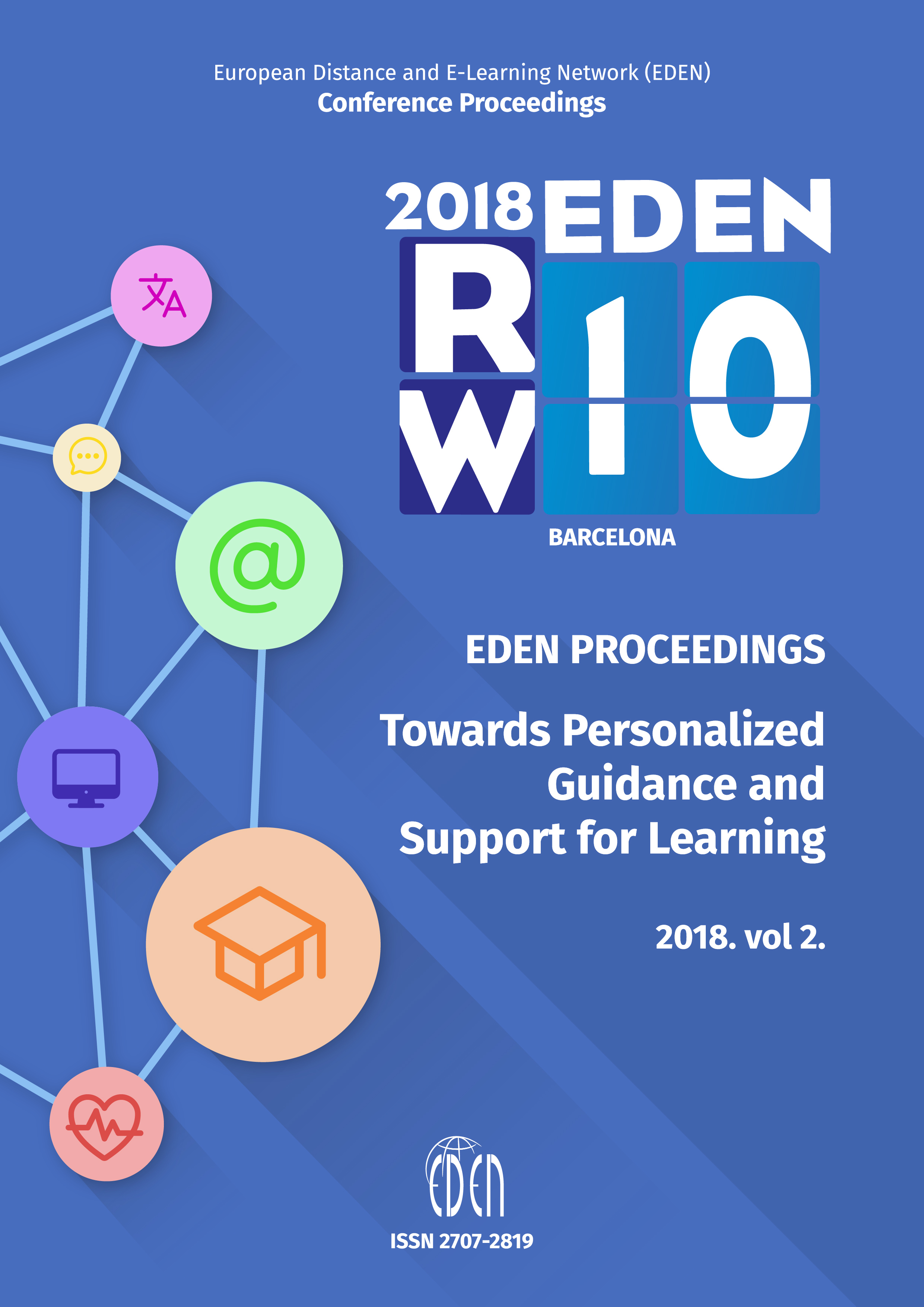Virtual and Mobility Activities to Promote Dual Learning Approach in Higher Education: The Euroduale Project Experience
Virtual and Mobility Activities to Promote Dual Learning Approach in Higher Education: The Euroduale Project Experience
Author(s): Antonella Poce, Maria Rosaria Re, Francesca AmenduniSubject(s): Social Sciences, Education, Higher Education
Published by: European Distance and E-Learning Network
Keywords: Socio-economic issues; Competence development; Institutional innovation and development, case study
Summary/Abstract: EuroDuaLE is an Erasmus+ KA2 project (2015-2018) which aims at promoting innovative and more flexible teaching and learning methods to make highly skilled people an asset for modern societies, reducing unemployment for future graduate generations. Building on existing good practice (i.e. Germany) the goal of EuroDuaLE is to find cost-effective ways for EU Members States to establish and expand the apprenticeship approach, with the development of an integrated transnational Dual Learning framework, where Higher Education Institutions and relevant stakeholders in the labour market establish a synergy and provide students with new curricula, combining formal training and training on-the job, physical and virtual mobility. Nowadays, Dual Learning Systems mainly apply to VET and more technical professions; EuroDuaLE intends to expand the dual scheme to Higher Education Institutions, where students acquire a wider range of knowledge and competences, offering more comprehensive programs, yet including professional and technical training on-the-job. 13 partners from 6 different countries (Italy, Germany, Belgium, Netherlands and Spain) designed, implemented and evaluated a pilot activities of dual learning programmes at European level during the academic year 2016-2017. The Roma Tre research group is partner of EuroDuaLE project and, besides contributing to the various project intellectual outputs, is in charge of evaluating all the related activities. The present paper is focused on the evaluation processes carried out by the Roma Tre team and presents the methodology, the tools and the results obtained within the virtual mobility learning activities, in the framework of the creation and implementation of dual learning pathways at European university level.
Journal: European Distance and E-Learning Network (EDEN) Conference Proceedings
- Issue Year: 2018
- Issue No: 2
- Page Range: 60-69
- Page Count: 10
- Language: English

